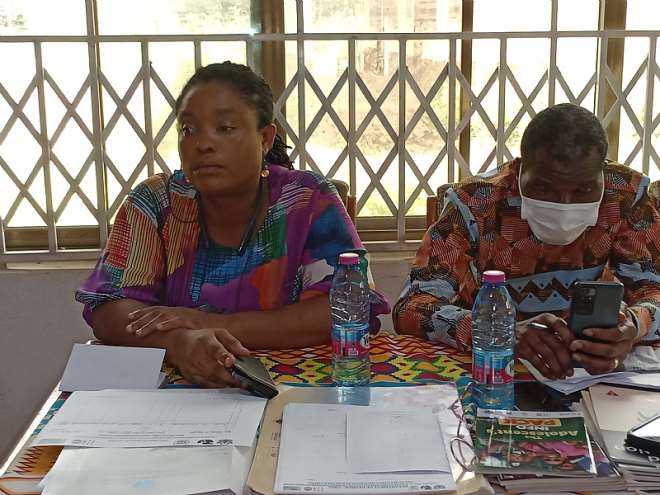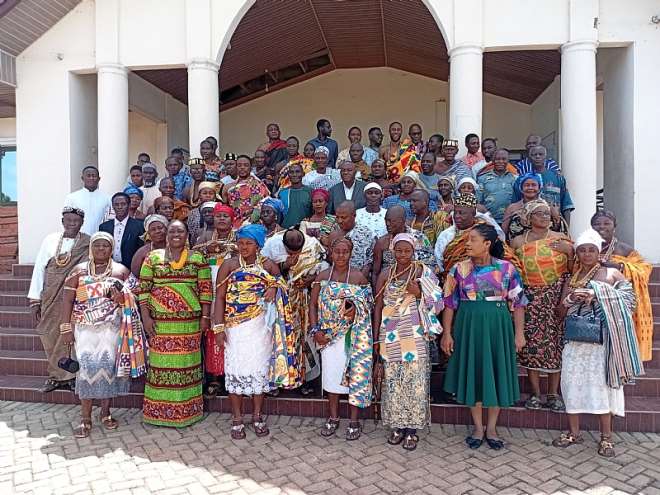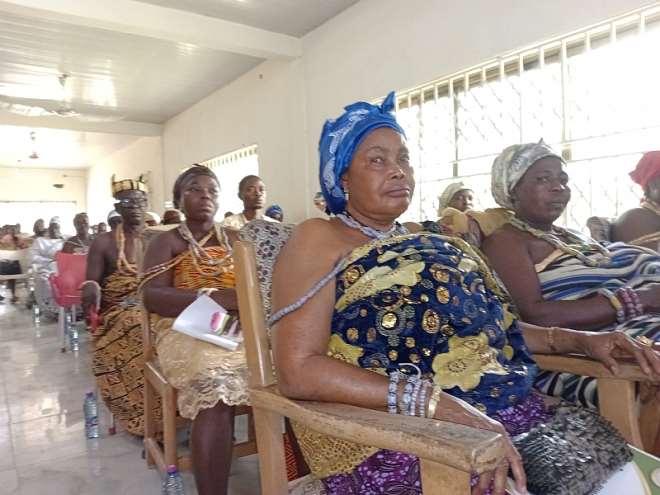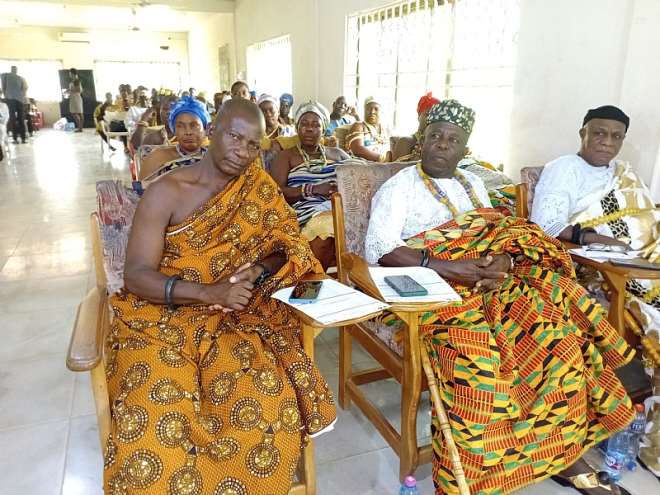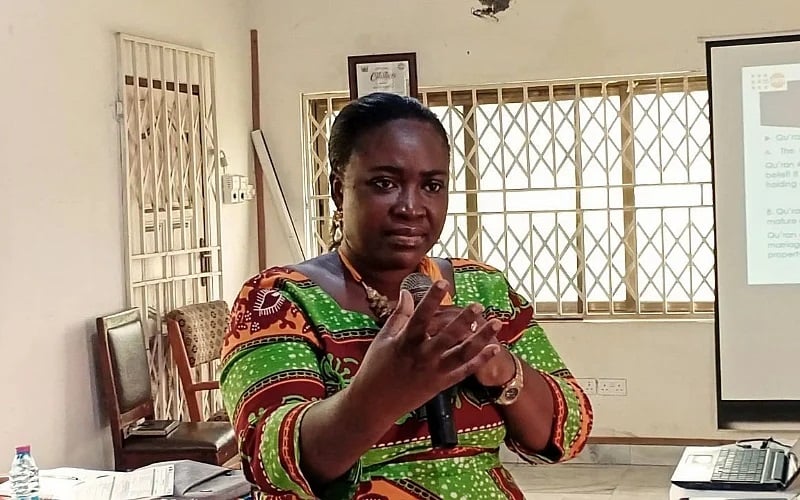Amid rising concerns over teenage sexual activity in Ghana, stakeholders are calling for urgent and holistic interventions to protect young people from the associated dangers of early sex, including teenage pregnancy, child marriage, and school dropout.
Although Ghana’s age of consent is legally 16, experts warn that many adolescents lack the emotional maturity, education, and confidence to make informed sexual choices. They argue that the ability to legally say “yes” should not overshadow the power to confidently say “no.”
At a community training programme in Akatsi North, Volta Region, organised under Phase 3 of the Global Programme to End Child Marriage, Madam Thywill Eyra Kpe, Volta Regional Director of Gender, led the charge in redefining what consent truly means for young people.
“Consent does not necessarily mean saying yes,” she said. “It means having the power to understand and say no.”
The training brought together traditional leaders, including chiefs and queen mothers from the Ave Traditional Area, to review progress on local work plans and deepen their role in protecting children from harmful cultural practices.
Madam Kpe stressed that early sexual activity remains a driving factor behind teenage pregnancy and child marriage. She cautioned that without knowledge and confidence, adolescents—particularly girls—are left vulnerable.
“The solution does not lie in legislating the sexual feelings of children,” she noted. “It lies in educating them about consequences, boundaries, and healthy choices.”
She advocated for comprehensive sexual education, with a focus on empowering youth to make decisions that protect their health and future.
The meeting also offered a platform for traditional leaders to share implementation challenges. They cited limited resources, cultural resistance, and deep-rooted social norms as major obstacles. However, most leaders pledged to continue enforcing bylaws and championing child rights in their communities.
Mamaga Awutorlewe IV, Paramount Queen of the Xevi Traditional Area, pointed to poverty as a root cause. In a largely agrarian district, she explained, economic hardship leads some parents to neglect their children’s welfare—particularly girls, who are encouraged to pursue exploitative relationships.
“Some parents are advising their girls to emulate friends who get things from men. We must change this,” she said.
Calling the engagement an “eye-opener,” Mamaga pledged her council’s commitment to develop new internal strategies to protect children.
Teenage pregnancy rates in Akatsi North have been declining over the past three years, falling from 12.49% to 7.79% by 2024, according to District Health Director Timothy Mahama. He credited collaborative efforts by the Ghana Education Service, Ghana Health Service, and NGOs such as Good Neighbours and International Needs, who provide reproductive health education and counselling.
Mahama praised local women trained as community counsellors for their role in supporting adolescents and linking them to healthcare. He noted these interventions were bolstered by the District Assembly and Department of Social Welfare, which strengthened referral systems.
Still, Mahama warned that more effort is needed. He called on traditional and religious leaders to step up and sustain the progress made.
“Everybody must play their part so that we can have a good future for our children,” he stated.
District Chief Director Madam Rubby Sitsofe Besagah raised additional concerns about boys under 16 abandoning school to engage in commercial motorbike transport—an unsafe and troubling trend. She appealed to parents to prioritise education and well-being over short-term economic gain.
She also encouraged chiefs, assembly members, and opinion leaders to step up community sensitisation efforts and motivate youth to take charge of their futures.
Meanwhile, Mr. Israel Akrobortu, Volta Regional Director of the Department of Children, issued a heartfelt call for a return to traditional values in child-rearing.
“It takes a village to raise a child,” he reminded participants, urging parents to be more engaged and present in their children’s lives.
He likened parenting to farming—both require consistent nurturing. Akrobortu also warned against harmful spiritual practices used to undermine children’s destinies and urged communities to stay vigilant and impose sanctions where needed.
Torgbui Fodi II, representing Paramount Chief Torgbuiga Adogo Agbalekpor IV of the Ave-Xevi Traditional Area, acknowledged the combined efforts of churches, schools, and parents in raising awareness.
He revealed that the traditional council has now implemented specific guidelines to regulate youth conduct and vowed to report adults who engage in sexual activity with minors.
“We will not tolerate this anymore,” he declared. “The future of our children cannot be left to chance.”
The event ended with a strong reaffirmation by all stakeholders: education, community vigilance, and traditional leadership must work together to end child marriage and protect Ghana’s future.
